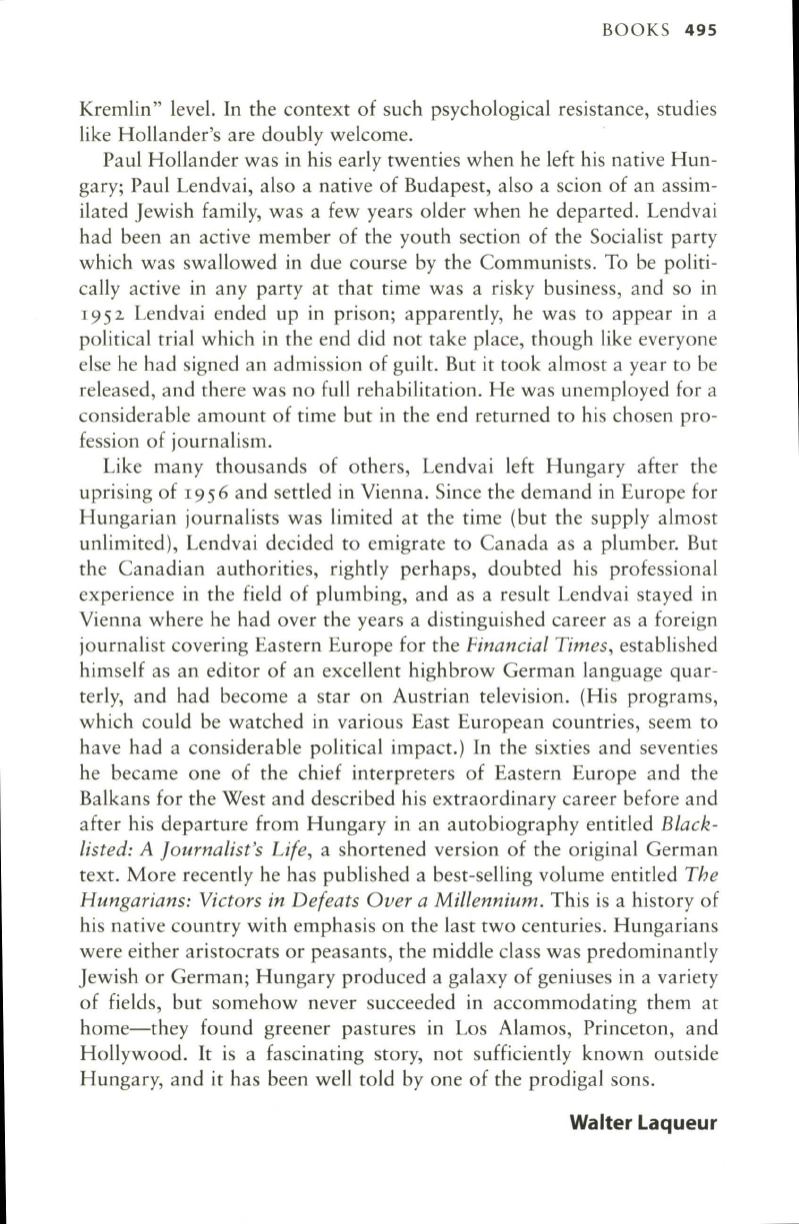
BOOKS
495
Kremlin" level. In the context of such psychological resistance, studies
like Hollander's are doubly welcome.
Paul Hollander was in his early twenties when he left his native Hun–
gary; Paul Lendvai, also a native of Budapest, also a scion of an assim–
ilated Jewish family, was a few years older when he departed. Lendvai
had been an active member of the youth section of the Socialist party
which was swallowed in due course by the Communists. To be politi–
cally active in any party at that time was a risky business, and so in
I9
5
2
Lendvai ended up in prison; apparently, he was to appear in a
political trial which in the end did not take place, though like everyone
else he had signed an admission of guilt. But it took almost a year to be
released, and there was no full rehabilitation. He was unemployed for a
considerable amount of time but in the end returned to his chosen pro–
fession of journalism.
Like many thousands of others, Lendvai left Hungary after the
uprising of
I9
56 and settled in Vienna. Since the demand in Europe for
Hungarian journalists was limited at the time (but the supply almost
unlimited), Lendvai decided to emigrate to Canada as a plumber. But
the Canadian authorities, rightly perhaps, doubted his professional
experience in the field of plumbing, and as a result Lendvai stayed in
Vienna where he had over the years a distinguished career as a foreign
journalist covering Eastern Europe for the
Financial Times ,
established
himself as an editor of an excellent highbrow German language quar–
terly, and had become a star on Austrian television. (His programs,
which could be watched in various East European countries, seem to
have had a considerable political impact.) In the sixties and seventies
he became one of the chief interpreters of Eastern Europe and the
Balkans for the West and described his extraordinary career before and
after his departure from Hungary in an autobiography entitled
Black–
listed: A Journalist's Life,
a shortened version of the original German
text. More recently he has published a best-selling volume entitled
The
Hungarians: Victors in Defeats Over a Millennium .
This is a history of
his native country with emphasis on the last two centuries. Hungarians
were either aristocrats or peasants, the middle class was predominantly
Jewish or German; Hungary produced a galaxy of geniuses in a variety
of fields, but somehow never succeeded in accommodating them at
home- they found greener pastures in Los Alamos, Princeton, and
Hollywood.
It
is a fascinating story, not sufficiently known outside
Hungary, and it has been well told by one of the prodigal sons.
Walter Laqueur


